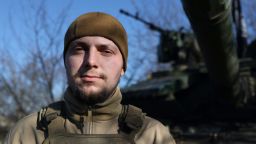Battles are underway in the south and east of Ukraine as authorities report more casualties and damage to civilian infrastructure on Monday.
Donetsk region
Donetsk region continues to see some of the heaviest fighting. On Monday, the Ukrainian military said that Russian forces are trying to advance toward Lyman, Bakhmut and Avdiivka.
At least one person was killed in the city of Krasnohorivka, said Pavlo Kyrylenko, the head of the Donetsk region military administration.
Kherson region
Russian forces have fired 42 times in the region in the last 24 hours, the regional military administration said Monday. “The enemy attacked civilian settlements of the region with artillery, MLRS, mortars, tanks, and infantry fighting vehicles,” it said.
At least three people were killed by Russian shelling in the city of Kherson on Sunday and eight civilians sustained injuries of varying severity, the regional military administration said.
Kharkiv region
At least one person was killed and three wounded in the city of Kharkiv on Sunday, said Oleh Syniehubov, head of the Kharkiv region military administration.
Preliminary investigations suggest the missile was fired from an S-300 air defense system, he said.
“The missile hit a 4-story residential building in the Kyivsky district,” said Syniehubov. “The upper floors and roof of the building were destroyed, and a large-scale fire broke out.”
Kupiansk, Vovchansk, Strilecha, Dvorichna and other towns came under enemy fire, added Syniehubov, with private houses, shops and other buildings damaged.
In Kupiansk, a 41-year-old man was wounded as a result of enemy shelling, he said.
Zaporizhzhia region
The situation remains relatively stable as Russian forces are concentrating on holding occupied territories in the region, the Zaporizhzhia region military administration said Monday.
Russian shelling damaged residential houses and buildings in various parts of the region, the regional police said.












